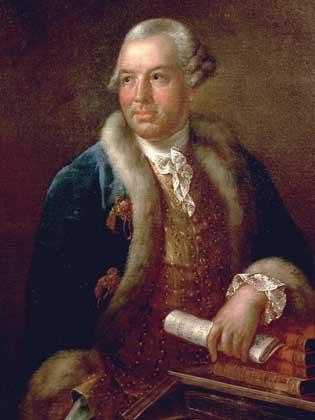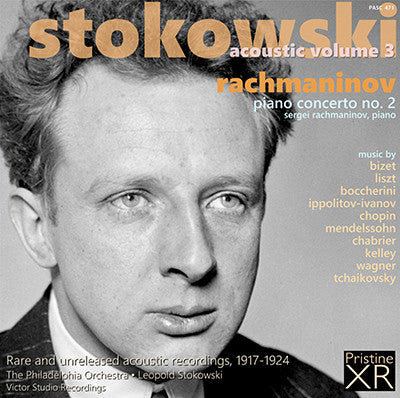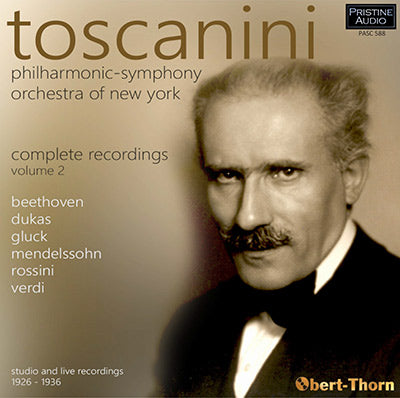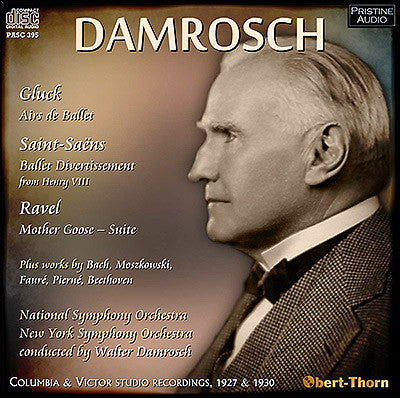Gluck

The strong influence of French opera in these works encouraged Gluck to move to Paris, which he did in November 1773. Fusing the traditions of Italian opera and the French national genre into a new synthesis, Gluck wrote eight operas for the Parisian stages. One of the last of these, Iphigénie en Tauride, was a great success and is generally acknowledged to be his finest work. Though he was extremely popular and widely credited with bringing about a revolution in French opera, Gluck's mastery of the Parisian operatic scene was never absolute, and after the poor reception of his Echo et Narcisse he left Paris in disgust and returned to Vienna to live out the remainder of his life.

Gluck
RACHMANINOV Piano Concerto No. 2
VARIOUS Symphonic movements and short pieces
Acoustic studio recordings, 1917-1924
Total duration: 79:41
Sergei Rachmaninov, piano
The Philadelphia Orchestra
BEETHOVEN Symphony No. 5
DUKAS L’apprenti sorcier
Overtures and excerpts:
GLUCK Orfeo ed Eurydice
MENDELSSOHN A Midsummer Night’s Dream
ROSSINI Il barbiere di Siviglia
ROSSINI L’Italiana in Algeri
ROSSINI Semiramide
VERDI La traviata
Studio and Live recordings, 1926-36
Total duration: 2hr 24:19
Philharmonic-Symphony Orchestra of New York
New York Philharmonic Orchestra
conducted by Arturo Toscanini
GLUCK Airs de Ballet
SAINT-SAËNS Ballet Divertissement from Henry VIII
RAVEL Mother Goose – Suite
Music by Bach, Fauré, Moszkowski, Pierné, Beethoven
Studio Recordings · 1927 and 1930
Total duration: 71:54
Walter Damrosch, conductor
National Symphony Orchestra
New York Symphony Orchestra
- Previous
- Page 2 of 2
-
Next



